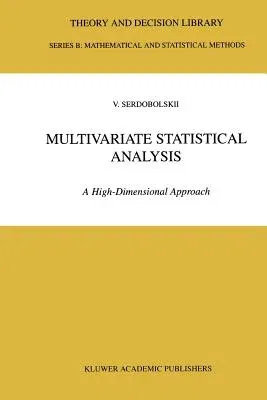V I Serdobolskii
(Author)Multivariate Statistical Analysis: A High-Dimensional ApproachPaperback, 9 December 2010

Qty
1
Turbo
Ships in 2 - 3 days
In Stock
Free Delivery
Cash on Delivery
15 Days
Free Returns
Secure Checkout
Part of Series
Theory and Decision Library B
Print Length
244 pages
Language
English
Publisher
Springer
Date Published
9 Dec 2010
ISBN-10
9048155932
ISBN-13
9789048155934
Description
Product Details
Author:
Book Format:
Paperback
Country of Origin:
NL
Date Published:
9 December 2010
Dimensions:
23.39 x
15.6 x
1.4 cm
ISBN-10:
9048155932
ISBN-13:
9789048155934
Language:
English
Location:
Dordrecht
Pages:
244
Publisher:
Weight:
367.41 gm

